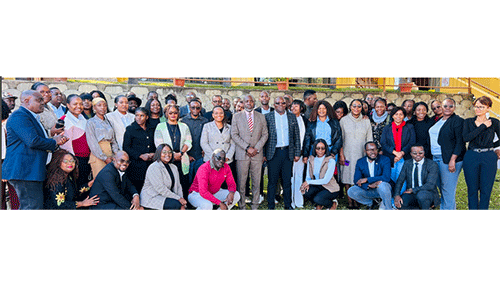RUNDU – The Ministry of Information and Communication Technology (MICT) Executive Director (ED) Audrin Mathe said building effective communication capacity requires investment in both people and systems across multiple dimensions.
He made these remarks while officiating an engagement with communication officers from various ministries, State-owned enterprises and local authorities in Rundu on Tuesday.
He said government communications officers must develop technical skills for digital platforms and data analysis tools, strategic communication skills for designing impactful campaigns and cultural competence to navigate Namibia’s linguistic and cultural diversity whilst maintaining consistency in core government positions.
“Traditional approaches to measuring government communication have focused primarily on outputs: the number of media releases issued, social media posts published or events organised,” Mathe stated.
“Moving towards outcome-based measurement requires us to define clearly what we hope to achieve and develop metrics that assess progress towards those objectives – whether increased citizen awareness, improved public understanding, enhanced trust in institutions or changes in citizen behaviour and democratic participation,” he noted.
Mathe suggested that regular evaluation and adaptation based on measurement results must become standard practice.
“This means establishing baseline measurements before launching new initiatives, conducting regular assessments during implementation and using evaluation results to refine and improve our approaches continuously,” he added.
He reminded government communication officers that effective government communication requires coordination and collaboration across Office, Ministries and Agencies and all public entities.
This is because citizens experience government as a single entity that should provide coherent, consistent and complementary services and information.
He said developing robust coordination mechanisms for both routine and emergency communication must be a priority for all government communications officers.
“Strengthening government communication for transparency and impact is not merely a technical challenge. It is a democratic imperative that requires commitment, creativity and collaboration from all of us. The Namibian people deserve government communication that is transparent, accessible, timely and effective,” he said.
“They deserve to understand how government decisions affect their lives, to have opportunities to participate in policy development and to hold government accountable for its commitments,” Mathe stated.
Rundu Rural constituency councillor Paulus Mbangu stated that government communication plays a vital role in fostering transparency, trust and engagement with the public.
“It is our responsibility to ensure that the information we share is accurate, timely and accessible to all citizens.
As we engage in discussions today, I encourage each of you to share your insights and experiences, as collaboration will be key to refining our communication strategies.
“With the increasing frequency and sophistication of cyber threats, it is crucial that we prioritise the protection of our digital assets and sensitive information,” he said.
-jmuyamba@nepc.com.na


